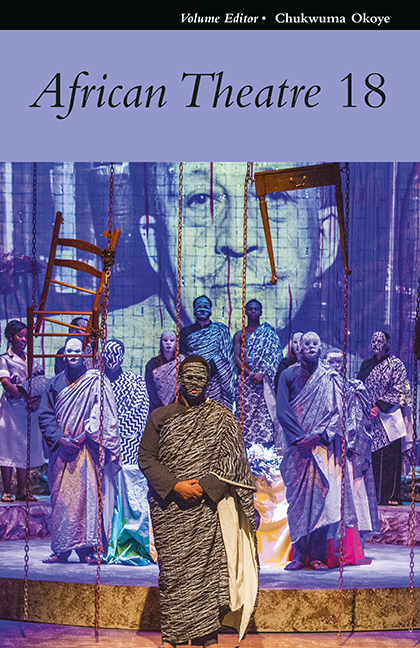Orality & the Folktale Reflections on Anansesɛm & its Metaphysical Content
Published online by Cambridge University Press: 02 April 2020
Summary
The word Anansesɛm, which literally means spider stories, has come to assume different meanings and uses. For instance, although not all Akan folktales feature the folklore hero/villain Ananse the spider, all Akan fictional stories are named after him. The justification for this honour is given in a folktale which says that the spider accomplished a feat set by the Supreme Being, Nana Nyankopɔn, and in reward Nana Nyankopɔn decreed that all folktales be named after Ananse. Thus in the Akan language even folktales from different cultures are referred to as the Anansesɔm of those cultures (Ahenkorah 2011: 174).
The folktale, a facet of folklore, refers to some verbal forms of pre-literate cultures whose channels of communication are rooted in orality. According to Ato Quayson, ‘oral tradition’ is a term that scholars of Africa generally use to indicate non-literary or non-written intellectual resources. The term occupies the same semantic field as ‘orality’, a word created in sharp contrast to the implicit valorisation of ‘literacy’ as it occurs in comparative studies of industrial and non-industrial cultures especially in expressing the differences between the two. In constituting a sense of cultural identity, orality was extended to denote a set of conceptual skills which bear the same status as literacy. In this usage, as Quayson points out, orality has come to out-step the bounds of its original connotation of ‘oral tradition’, ‘to embrace a notion of generalised concepts, symbols, rhetorical capacities and even unarticulated assumptions whose inspiration is in the totality of oral culture’ (2009: 159). In his essay on oral culture, Goody defines tradition as a ‘handing over in the wide sense of intergenerational communication’ (1992: 14). A merger of the two definitions gives ‘intergenerational communication’ a scope, however loosely, which explains Irele's (2001) terminology – the teaching or the transmission of notions of beauty, in all conceivable forms and genres, is suggestive of a concept of continuity. The communication takes place in face-to-face situations which give importance to the giver of information as an older party. Goody explains this notion when, in discussing the characteristics of oral cultures, he asserts that memory serves as a repository of information.
- Type
- Chapter
- Information
- African Theatre 18 , pp. 121 - 138Publisher: Boydell & BrewerPrint publication year: 2019



